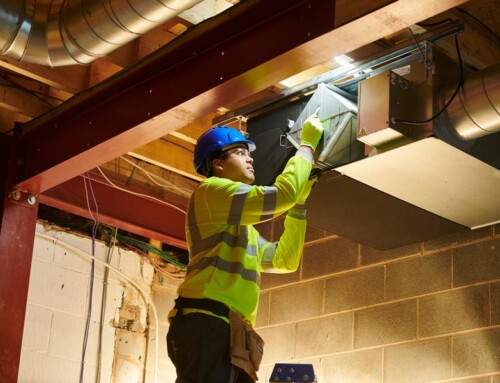What Is a Sustainable Product? A Practical Guide for Facilities

What is a sustainable product? If you’re managing a facility, sourcing cleaning supplies, or updating procurement policies, you’ve likely heard the term. But what does it actually mean—and how can you be sure the products you use are truly sustainable? In short, a sustainable product is one that’s designed to minimize its environmental footprint throughout its entire lifecycle. These products are a key focus in the broader effort toward greener operations—explore more at the ISSA Sustainability Hub.
In short, a sustainable product is one that’s designed to minimize its environmental footprint throughout its entire lifecycle—from sourcing to manufacturing, usage, and disposal. These products aim to preserve natural resources, reduce harm to people and ecosystems, and often contribute to long-term cost savings.
Understanding the qualities of sustainable products is essential to creating healthier spaces while meeting green building standards and stakeholder expectations.
Key Characteristics of a Sustainable Product
Not every product labeled “green” or “eco-friendly” is truly sustainable. Look for these key indicators:
- Low Environmental Impact
A sustainable product uses fewer natural resources, produces less waste, and reduces pollution at every stage—from raw material sourcing to end-of-life disposal.
Examples include:
- Biodegradable or compostable packaging
- Products made with renewable or recycled materials
- Formulas that break down safely in the environment
- Energy and Water Efficiency
During both manufacturing and use, sustainable products help conserve energy and water. For example, low-moisture carpet extractors clean effectively with minimal water use.
- Safe for Human Health
Products that limit exposure to harmful chemicals help create safer environments for cleaning staff, building occupants, and visitors. Look for third-party certifications that confirm health safety standards.
- Ethical Sourcing and Production
Truly sustainable products are often manufactured under fair labor conditions and use materials that are responsibly sourced—such as sustainably harvested wood or ethically mined minerals.

Certifications That Matter
With so many products claiming to be “green,” how can you trust which ones are legitimate? Look for recognized third-party certifications that back up sustainability claims, such as:
- Green Seal: Evaluates performance, health impacts, and environmental responsibility
- EPA Safer Choice: Confirms that ingredients meet safety and performance criteria
- Cradle to Cradle Certified™: Focuses on circular design and responsible material use
These labels help ensure you’re investing in products that meet rigorous sustainability standards—not just marketing hype.
Examples of Sustainable Products in Facility Cleaning
Facilities aiming to reduce their environmental impact should prioritize sustainable products in key areas like:
- Cleaning Chemicals: Use concentrated, biodegradable formulas in refillable containers
- Paper Products: Choose 100% recycled paper towels and tissues with minimal packaging
- Equipment: Select high-efficiency vacuums with HEPA filters or auto-scrubbers that use less water
- Disposables: Replace single-use items with washable microfiber cloths and mops
For more insight on facility sustainability, visit the ISSA Sustainability Hub.
How to Evaluate Products for Sustainability
Here’s a practical checklist to determine if a product qualifies as sustainable:
- Does it have a trusted third-party certification?
- Is the packaging recyclable or minimal?
- Are ingredients or materials renewable or responsibly sourced?
- Is the product designed to last or reduce consumption over time?
- Does it perform well without requiring excess energy or water?
If the answer is “yes” to most of these, you’re likely looking at a sustainable product.
Why Sustainable Products Matter in Facility Management
Environmental Stewardship
Choosing sustainable products reduces pollution, conserves resources, and supports long-term ecological balance.
Healthier Spaces
Lowering exposure to harsh chemicals leads to better air quality and fewer health issues among building occupants and cleaning staff.
Operational Efficiency
Sustainable products often offer better durability, lower usage rates, and reduced waste—delivering cost savings over time.
Enhanced Brand Image
Customers and stakeholders notice when businesses prioritize sustainability. It can be a valuable part of your organization’s public-facing mission.
Common Myths About Sustainable Products
Let’s clear up a few misconceptions:
“They don’t work as well.”
Today’s sustainable cleaning products meet or exceed the performance of traditional ones—especially those with third-party certifications.
“They’re always more expensive.”
While the upfront cost can be higher, reduced usage, less waste, and fewer health-related incidents often lead to long-term savings.
“Anything labeled ‘natural’ is sustainable.”
Not necessarily. The term “natural” is unregulated. Focus on certifications and transparent ingredient lists.
Final Takeaway
So, what is a sustainable product? It’s more than just a buzzword. In the cleaning and facility management industry, sustainable products are tools that promote health, reduce environmental damage, and support long-term business success.
By choosing items that meet certified sustainability standards, your facility can protect people and the planet—while still maintaining cleanliness and performance.
Explore more resources and tools to support your sustainability goals at the ISSA Sustainability Hub.
















